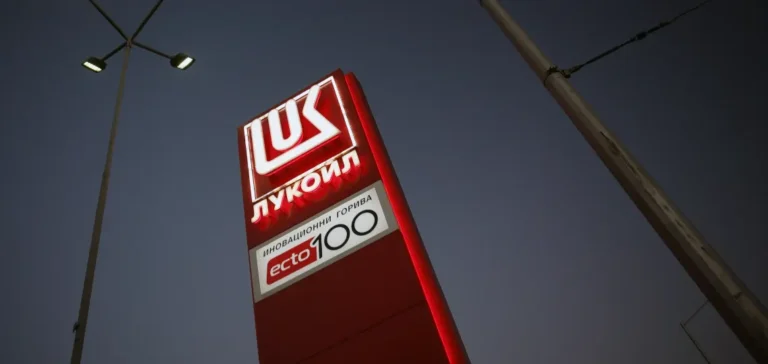Russian oil group Lukoil has called on Bulgarian authorities not to obstruct the sale of its assets, after the government placed the Bourgas refinery under special administration. The state’s intervention comes as Lukoil is now officially targeted by US economic sanctions, with a deadline set for 29 April 2026 to withdraw from the Bulgarian market.
Bourgas refinery, a strategic asset
Lukoil owns the Neftochim plant in Bulgaria, the largest refinery in the Balkans, located in Bourgas on the Black Sea coast. The facility is the country’s largest company, with a turnover of €4.68bn ($5.04bn) in 2024. The group also operates an extensive network of service stations, oil depots and companies specialising in maritime and aviation logistics.
In response to the US sanctions announced at the end of October, the Bulgarian government appointed an external administrator to oversee the refinery. Sofia hopes this move will prevent secondary sanctions, which could affect access to banking services, transporters or insurers operating under US jurisdiction.
A politically sensitive operation
Lukoil confirmed that it has begun proceedings to sell all its assets in Bulgaria. In a statement, the company said it was “taking all necessary measures” to carry out the sale, while warning that it reserved the right to pursue legal remedies in the event of interference.
The situation has triggered internal political tensions. Bulgaria’s opposition has voiced concerns over a potential opaque transfer of the assets to actors close to the ruling coalition. The government has denied any such intent, stating that the intervention was solely aimed at maintaining national fuel supply.
Commercial risks for foreign partners
The designation of Lukoil and Rosneft as sanctioned entities places many trading partners in a difficult position. Companies doing business with these groups risk secondary sanctions that could block access to international commodity markets. This threat prompted a swift reaction from Bulgaria, determined to maintain stable fuel imports.
Washington initially gave Lukoil one month to divest its Bulgarian assets. The deadline was later extended to April 2026, giving both authorities and the Russian group more time to organise an orderly market exit without disrupting supply.






















